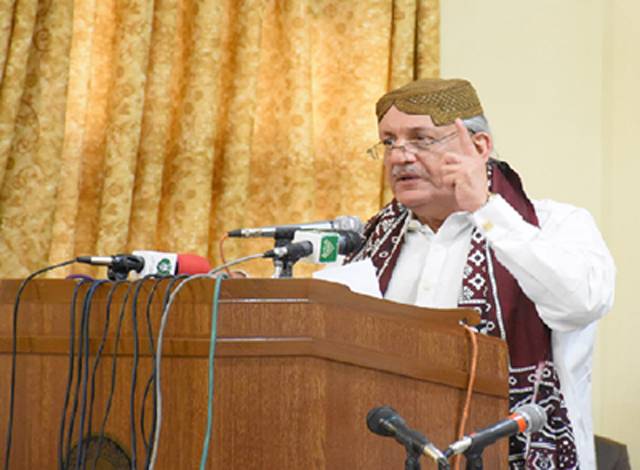ISLAMABAD - Former Senate Chairman and Pakistan Peoples Party (PPP) leader, Mian Raza Rabbani, on Monday expressed his opposition to the decision of the Public Accounts Committee (PAC) of the parliament to initiate an investigation against Supreme Court (SC) Justice Mazahar Ali Akbar Naqvi on allegations of holding assets beyond known sources.
In a conversation with a select group of journalists in federal capital, Rabbani said that the PAC would be out of its jurisdiction if it inquired into the wealth of an individual judge of the Supreme Court, and suggested that the committee may take up other matters related to finances of the institution of the Supreme Court. The PAC had directed the concerned authorities, including the Federal Board of Revenue (FBR), to submit the tax and assets details of the judge, amidst an ongoing disagreement between the ruling coalition and the apex court over the issue of holding polls in Punjab and Khyber Pakhtunkhwa within 90 days. Several references have been filed against Justice Naqvi in Supreme Judicial Council for alleged misconduct and having assets beyond known sources.
Senator Rabbani stated that “Parliament ought not to do what the law or the Constitution, 1973, does not permit it to do,” while objecting to the PAC decision to hold an inquiry into the assets details of the judge. He added that the parliament must strongly guard its primacy over institutions functioning under the Constitution and exercise its right of legislation and “control over the purse strings.”
The parliament has for long abdicated its rights to the judiciary and the executive, he said, and it must stand up to defend its territory and guard its constitutional rights. Rabbani stressed that “all institutions functioning under the Constitution must adhere to the concept of trichotomy of power.” He suggested that the present intra-institutional crisis required an institutional dialogue, and the parliament should take the lead.






